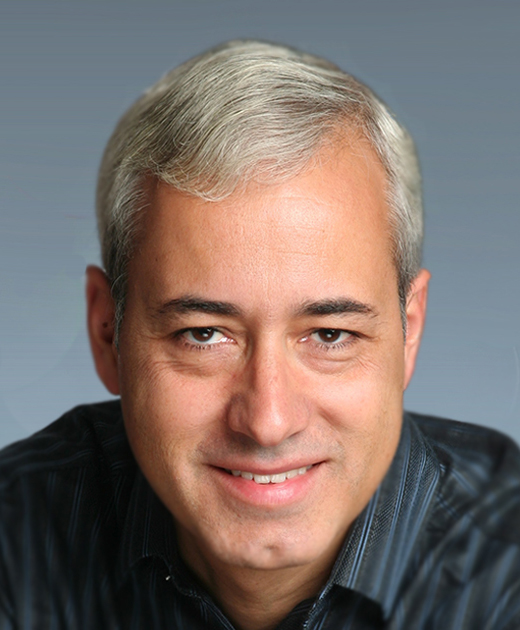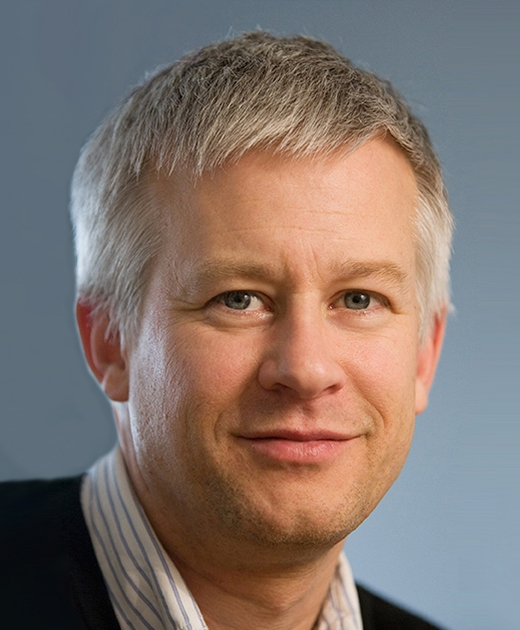The American Association for the Advancement of Science, the world’s largest general scientific society, has named Allen School professor emeritus Pedro Domingos and professor Daniel Weld among its class of 2020 AAAS Fellows honoring members whose scientifically or socially distinguished efforts have advanced science or its applications. Both Domingos and Weld were elected Fellows in the organization’s Information, Computing, and Communication section for their significant impact in artificial intelligence and machine learning research.
Pedro Domingos
Domingos was honored by the AAAS for wide-ranging contributions in AI spanning more than two decades and 200 technical publications aimed at making it easier for machines to discover new knowledge, learn from experience, and extract meaning from data with little or no help from people. Prominent among these, to his AAAS peers, was his introduction of Markov logic networks unifying logical and probabilistic reasoning. He and collaborator Matthew Richardson (Ph.D., ‘04) were, in fact, the first to coin the term Markov logic networks (MLN) when they presented their simple yet efficient approach that combined first-order logic and probabilistic graphical models to support inference learning.
Domingos’ work has resulted in several other firsts that represented significant leaps forward for the field. He again applied Markov logic to good effect to produce the first unsupervised approach to semantic parsing — a key method by which machines extract knowledge from text and speech and a foundation of machine learning and natural language processing — in collaboration with then-student Hoifung Poon (Ph.D., ‘11). Later, Domingos worked with graduate student Austin Webb (M.S., ‘13) on Tractable Markov Logic (TML), the first non-trivially tractable first-order probabilistic language that suggested efficient first-order probabilistic inference could be feasible on a larger scale.
Domingos also helped launch a new branch of AI research focused on adversarial learning through his work with a team of students on the first algorithm to automate the process of adversarial classification, which enabled data mining systems to adapt in the face of evolving adversarial attacks in a rapid and cost-effective way. Among his other contributions was the Very Fast Decision Tree learner (VFDT) for mining high-speed data streams, which retained its status as the fastest such tool available for 15 years after Domingos and Geoff Hulten (Ph.D., ‘05) first introduced it.
In line with the AAAS’ mission to engage the public in science, in 2015 Domingos published The Master Algorithm: How the Quest for the Ultimate Learning Machine Will Remake Our World. Geared to the expert and layperson alike, the book offers a comprehensive exploration of how machine learning technologies influence nearly every aspect of people’s lives — from what ads and social posts they see online, to what route their navigation system dictates for their commute, to what movie a streaming service suggests they should watch next. It also serves as a primer on the various schools of thought, or “tribes,” in the machine learning field that are on a quest to find the master algorithm capable of deriving all the world’s knowledge from data.
Prior to this latest honor, Domingos was elected a Fellow of the Association for the Advancement of Artificial Intelligence (AAAI) and earned two of the highest accolades in data science and AI: the SIGKDD Innovation Award from the Association of Computing Machinery’s Special Interest Group on Knowledge Discovery and Data Mining, and the IJCAI John McCarthy Award from the International Joint Conference on Artificial Intelligence.
Daniel S. Weld
AAAS recognized Weld for distinguished contributions in automated planning, software agents, crowdsourcing, and internet information extraction during a research career that spans more than 30 years. As leader of the UW’s Lab for Human-AI Interaction, Weld seeks to combine human and machine intelligence to accomplish more than either could on their own. To that end, he and his team focus on explainable machine learning, intelligible and trustworthy AI, and human-AI team architectures to enable people to better understand and control AI-driven tools, assistants, and systems.
Weld has focused much of his career on advanced intelligent user interfaces for enabling more seamless human-machine interaction. Prominent among these is SUPPLE, a system he developed with Kryzstof Gajos (Ph.D., ‘08) that dynamically and optimally renders user interfaces based on device characteristics and usage patterns while minimizing user effort. Recognizing the potential for that work to improve the accessibility of online tools for people with disabilities, the duo subsequently teamed up with UW Information School professor and Allen School adjunct professor Jacob Wobbrock to extend SUPPLE’s customization to account for a user’s physical capabilities as well.
Another barrier that Weld has sought to overcome is the amount of human effort required to organize and maintain the very large datasets that power AI applications. To expedite the process, researchers turned to crowdsourcing, but the sheer size and ever-changing nature of the datasets still made it labor-intensive. Weld, along with Jonathan Bragg (Ph.D., ‘18) and affiliate faculty member Mausam (Ph.D., ‘07), created Deluge to optimize the process of multi-label classification that significantly reduced the amount of labor required compared to the previous state of the art without sacrificing quality. Quality control is a major theme of Weld’s work in this area, which has yielded new tools such as Sprout for improving task design, MicroTalk and Cicero for augmenting decision-making, and Gated Instruction for more accurate relation extraction.
In addition to his technical contributions, AAAS also cited Weld’s impact via the commercialization of new AI technologies. During his tenure on the UW faculty, he co-founded multiple venture-backed companies based on his research: Netbot Inc., creator of the first online comparison shopping engine that was acquired by Excite; AdRelevance, an early provider of tools for monitoring online advertising data that was acquired by Nielsen Netratings; and Nimble Technology, a provider of business intelligence software that was acquired by Actuate. Weld has since gone from founder to funder as a venture partner and member of the Technology Advisory Board at Madrona Venture Group.
Weld, who holds the Thomas J. Cable/WRF Professorship, presently splits his time between the Allen School, Madrona, and the Allen Institute for Artificial Intelligence (AI2), where he directs the Semantic Scholar research group focused on the development of AI-powered research tools to help scientists overcome information overload and extract useful knowledge from the vast and ever-growing trove of scholarly literature. Prior to this latest recognition by AAAS, Weld was elected a Fellow of both the AAAI and the ACM. He is the author of roughly 200 technical papers and two books on AI on the theories of comparative analysis and planning-based information agents, respectively.
Domingos and Weld are among four UW faculty members elected as AAAS Fellows this year. They are joined by Eberhard Fetz, a professor in the Department of Physiology & Biophysics and DXARTS who was honored in the Neuroscience section for his contributions to understanding the role of the cerebral cortex in controlling ocular and forelimb movements as well as motor circuit plasticity, and Daniel Raftery, a professor in UW Medicine’s Department of Anesthesiology and Pain Medicine who was honored in the Chemistry section for his contributions in the fields of metabolomics and nuclear magnetic resonance, including advanced analytical methods for biomarker discovery and cancer diagnosis.
Read the AAAS announcement here and the UW News story here.
Congratulations to Pedro, Dan, and all of the honorees!



